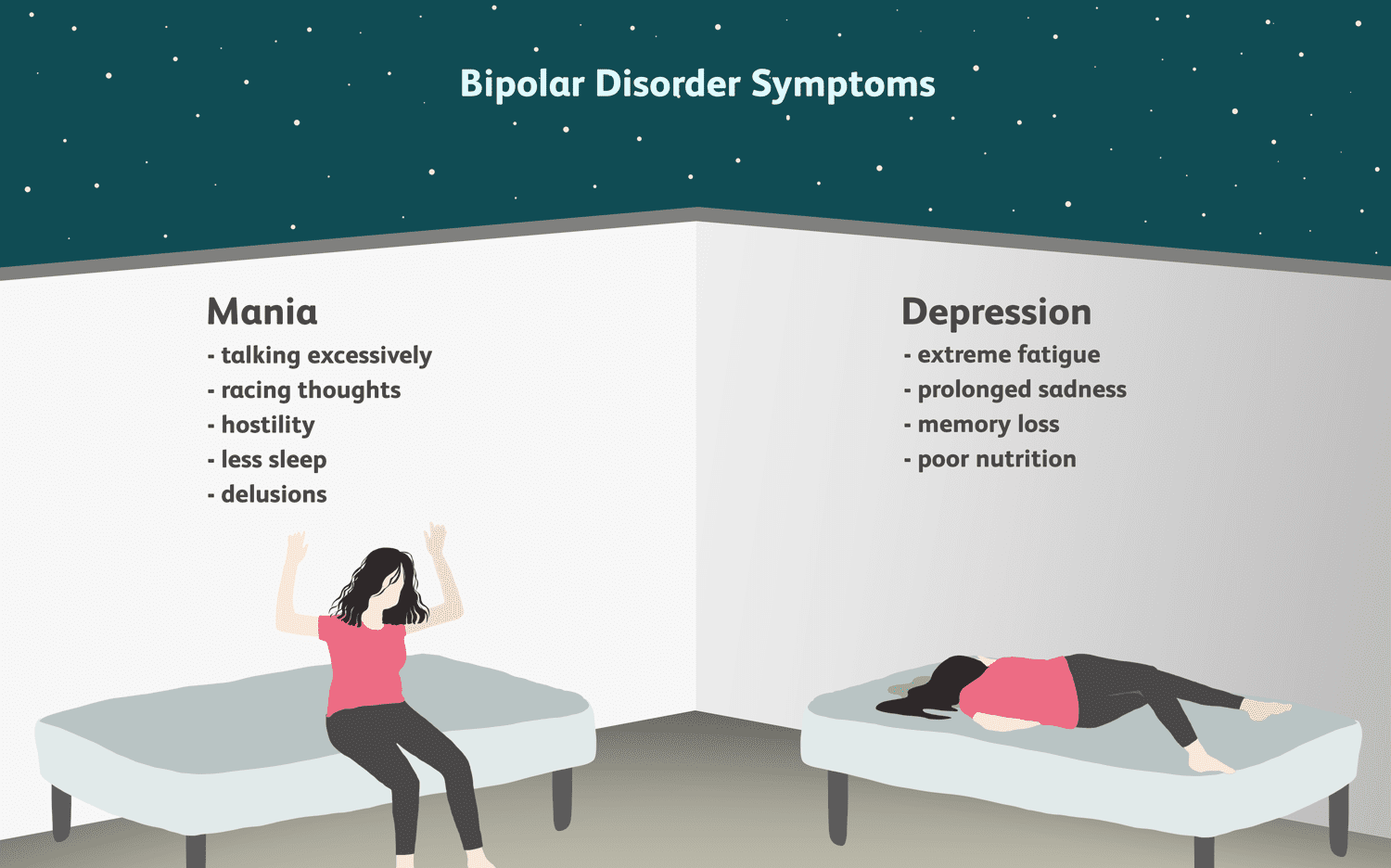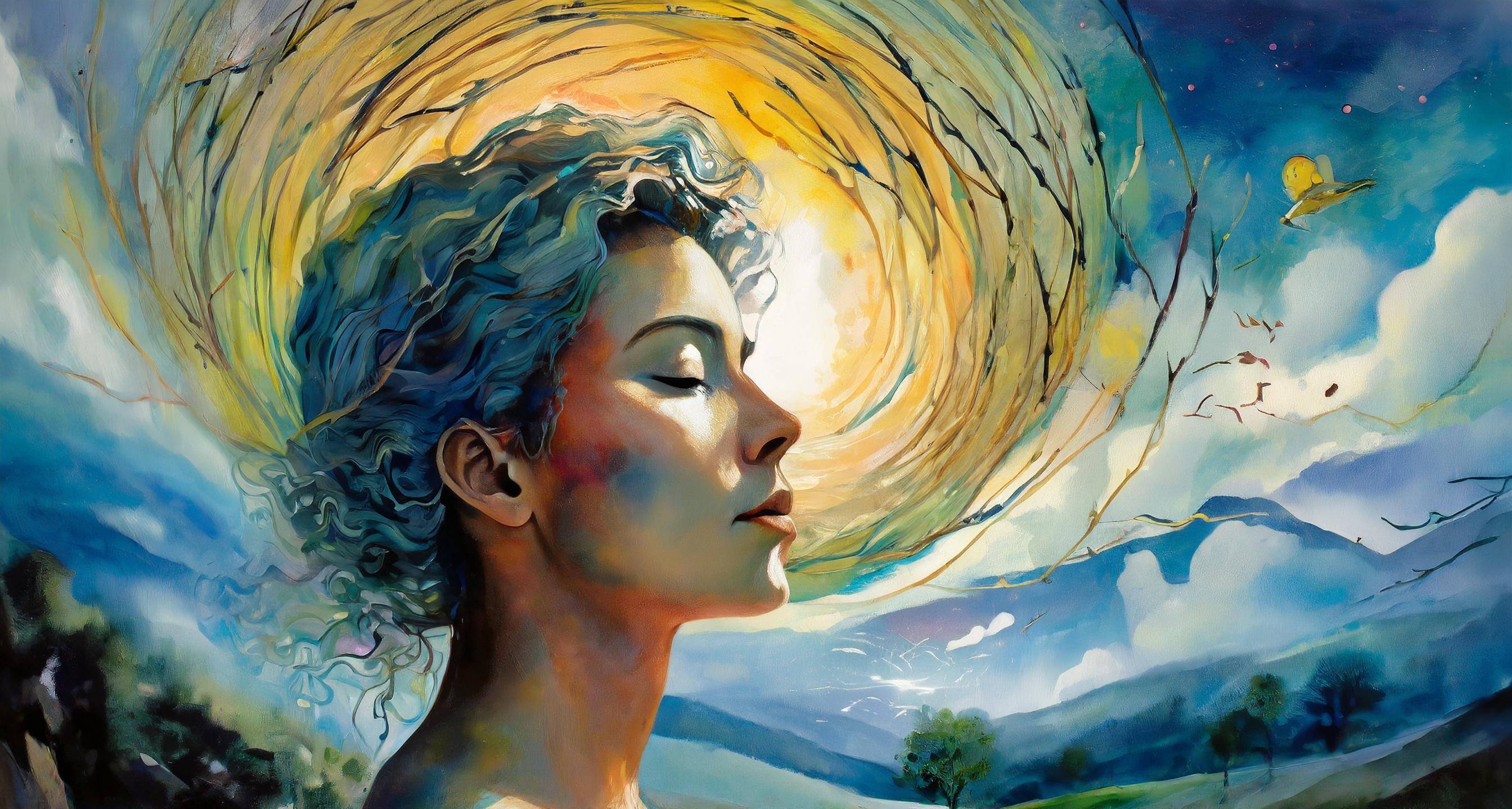Nowadays mental health issues such as bipolar disorder, schizophrenia, depression issues, anxiety, and schizophrenia problems have become more common due to the pressure in the individual personal or professional lives, however, the causes may be different here is what we need about bipolar disorder.
Understanding bipolar disorder:
Bipolar disorder can be defined as a mental condition where the person will have extreme mood swings such as feeling extremely low and sometimes extremely high. These extremely high and low moods are called hypomania and mania. People with bipolar disorder also feel completely exhausted, hopeless, sad, and depressed during their lows and when they are high on energy they feel more irritated. Bipolar disorder is also called manic depression in medical terms. Bipolar disorder affects the sleep, behavior, energy, and thought processes of the person. The highs and lows of the mood are treated as two poles of mood which is why it is called bipolar disorder.

Are there any types of bipolar disorder?
Yes, there are mainly three types of bipolar disorder :
1)Bipolar I Disorder:
In this type, the person will experience extreme mood swings which include intense excitement and energy in hypomania and depression, sadness, and hopelessness in mania. These mood swings may be seen for about one or two weeks but if you experience more than that you need to consult with the doctor to avoid further complications.
2)Bipolar II Disorder:
The symptoms of bipolar II are quite similar to bipolar I but the mood swings are less severe than the above case. Here the person feels confident and energetic but not to the extent seen in bipolar I. Also, the person feels sad, hopeless, and low energy. This does not last for weeks as bipolar II disorder.
3)Cyclothymic Disorder:
In cyclothymic disorder, the mood swings are not as severe as in bipolar disorders. The cyclothymic disorder is seen for about 1 year in kids or teenagers and two years in adults.
Symptoms of bipolar disorder:
1) People with bipolar disorder feel super excited and super happy without any reason.
2)People with bipolar disorder either sleep more or do not sleep at all.
3)People with this issue feel depressed, sad hopeless, and feeling of helplessness, or worthlessness.
4)They might feel a loss of interest in their everyday activities.
5) They easily get tired and feel low energy most of the time.
6)High sex drive or extremely low sex drive.
7)Easily distracted or low concentration on your work.
8)High feeling to cry for every small thing.
9)Sudden weight loss or sudden weight gain.
10)Suicidal thoughts are increased in people with bipolar disorder.
Causes of bipolar disorder?
1)Neurochemical imbalance:
Any imbalances in serotonin, dopamine, and norepinephrine can lead to bipolar disorder. These imbalances in neurotransmitters lead to mood swings in people with bipolar disorder.
2)Brain structure and function:
People with any abnormalities in the brain structure can also have bipolar disorder.
3)Stress:
Stress can also be a cause of bipolar disorder. Most people who lead a stressful life due to their reasons are most prone to bipolar disorder.
4)Health issues:
A few health issues such as thyroid, multiple sclerosis, brain tumors, etc may impact your mental health due to hormonal imbalances.
Diagnosing bipolar disorder can be done by a psychiatrist or a mental health coach. If you are experiencing extreme mood swings as mentioned above you need to consult a psychiatrist on an immediate basis. The psychiatrist will diagnose bipolar disorder through a clinical interview with the patient by clearly understanding the sleep schedule, energy levels, extreme mood swings levels, and the number of days from which they are facing the issue in mental health. Then the psychiatrist will confirm you with the presence of bipolar disorder.
How do psychiatrists treat bipolar disorder?
Bipolar disorder can be treated by either medication, psychotherapy, or lifestyle changes.
Medication:
Antidepressants and mood stabilizers are given to patients with bipolar disorder to control their mood swings and depression. Antidepressants help in controlling insomnia and help you with a proper sleep schedule.
Psychotherapy:
 Psychological therapy is given to bipolar disorder patients that can help with behavioral changes, stress management, and mood changes. These are done in sessions, according to your level of issue treatment is given in particular sessions.
Psychological therapy is given to bipolar disorder patients that can help with behavioral changes, stress management, and mood changes. These are done in sessions, according to your level of issue treatment is given in particular sessions.
Lifestyle changes:
Following a daily routine, maintaining a proper sleep schedule, following a healthy diet, regular exercise, yoga, and avoiding alcohol and smoking can also help in treating bipolar disorder. Monitoring your mental health regularly plays an important role in managing bipolar disorder.
In severe cases, hospitalization is highly recommended in treating bipolar disorder.
Bipolar disorder can be treated by medications and therapy but it can lead to serious complications in severe cases. So it is crucial to maintain self-care and a healthy routine.
